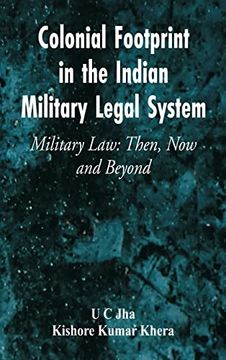Share
Colonial Footprint in the Indian Military Legal System Military Law: Then, Now and Beyond
U. C. Jha
(Author)
·
Kishore Kumar Khera
(Author)
·
Vij Books India
· Hardcover
Colonial Footprint in the Indian Military Legal System Military Law: Then, Now and Beyond - Jha, U. C. ; Khera, Kishore Kumar
Out of Stock
We'll email you when the book is available again
Synopsis "Colonial Footprint in the Indian Military Legal System Military Law: Then, Now and Beyond"
The Army Act (1950), the Air Force Act (1950) and the Navy Act (1957) provide a different legal framework for governing three wings of the Indian Armed Forces. These laws are derived primarily from the military laws promulgated by the British to govern the Native Indian Army and specifically after the Great Rebellion in 1857, its provisions were made more severe to serve the purposes of colonial masters. Even 75 years after Independence, several legal provisions followed in the Indian Armed Forces have a colonial footprint. The civilian criminal justice system in India, which has been modernized on the progressive principles of human rights, has been unjustly kept away from the military domain. The wind of change blowing over the military law world over has not permeated the closed prescient of the Indian military justice system. Since 2014, the government has repealed more than 1,500 old and obsolete laws; most of these were remnants of the British Era. However, the military legal system of the Victorian era is yet to see any change. With changing character of war forcing modernization of the three wings including a planned integration, there is a need to have a modern common law for the Indian Armed Forces. It must be based on our constitutional guarantees, changing composition of the armed forces, progressive principles of justice and human rights norms. This book takes a 360 view of the evolution of the Indian Military Legal system and proposes a pragmatic path ahead. Besides the armed forces and paramilitary personnel, this book will be of interest to parliamentarians, jurists, bureaucrats, and members of civil society who are associated with justice and accountability.

